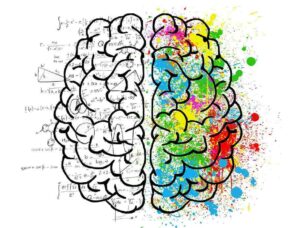Psychology is a vast field that encompasses many different approaches to understanding human behavior. One of these approaches is behavioral psychology, which focuses on how behavior is learned and modified through reinforcement, punishment, modeling, and other techniques. Behavioral psychology has been used to treat a range of disorders, including anxiety, depression, and addiction, and has been applied in settings such as education, healthcare, and organizational management. In this blog, we will explore the key concepts, applications, criticisms, and limitations of behavioral psychology.
Contents
What Is Behavioral Psychology?
 Behavioral psychology is a scientific study of observable behavior and how it’s influenced by environmental stimuli, rewards, and punishments. This approach emphasizes the role of conditioning, learning, and reinforcement in shaping behavior. Behavioral psychologists believe that behavior can be modified through conditioning and that any behavior can be learned or unlearned. This approach has been used in various fields, including education, therapy, and advertising.
Behavioral psychology is a scientific study of observable behavior and how it’s influenced by environmental stimuli, rewards, and punishments. This approach emphasizes the role of conditioning, learning, and reinforcement in shaping behavior. Behavioral psychologists believe that behavior can be modified through conditioning and that any behavior can be learned or unlearned. This approach has been used in various fields, including education, therapy, and advertising.
Behavioral Psychology Examples And Key Concepts
Given below are the key concepts with examples on which behavioral psychology is based:
Conditioning
Classical conditioning was famously demonstrated by Ivan Pavlov in his experiments with dogs. He noticed that the dogs would salivate in response to the sound of a bell if it was repeatedly paired with the presentation of food. Operant conditioning was studied by B.F. Skinner developed the concept of the Skinner box to study how animals learn through reinforcement and punishment.
Reinforcement
Reinforcement is one of the primary mechanisms through which behavior is shaped in behavioral psychology. Positive reinforcement involves adding a desirable consequence after a behavior occurs, making it more likely to occur again in the future. Negative reinforcement involves removing an aversive consequence after a behavior occurs, also making it more likely to occur again in the future. For example, a child who is praised for doing their homework may be more likely to do it again in the future. Or, a dog who learns to avoid an electric shock by pressing a lever will be more likely to press the lever again in the future.
Punishment
 Punishment can be effective in reducing undesirable behaviors, but it has limitations. It can be difficult to administer punishment consistently, and it may not always be effective in changing behavior in the long term. Moreover, punishment can have negative side effects, such as increased aggression or fear. For these reasons, many behavioral psychologists emphasize the importance of using reinforcement-based approaches whenever possible.
Punishment can be effective in reducing undesirable behaviors, but it has limitations. It can be difficult to administer punishment consistently, and it may not always be effective in changing behavior in the long term. Moreover, punishment can have negative side effects, such as increased aggression or fear. For these reasons, many behavioral psychologists emphasize the importance of using reinforcement-based approaches whenever possible.
Extinction
Extinction involves the removal of reinforcement, leading to a decrease in the likelihood of a behavior occurring again in the future. It can be difficult to implement, as the behavior may initially increase in frequency in response to the removal of reinforcement. However, if the reinforcement is consistently withheld, the behavior will eventually decrease and may even disappear altogether.
Modeling
Modeling is a powerful learning mechanism that can be used to teach new behaviors or modify existing ones. It is often used in therapy to teach social skills or to treat phobias, for example. Modeling can be particularly effective when the person being modeled is perceived as trustworthy or competent.
Shaping
Shaping involves reinforcing successive approximations of behavior until the desired behavior is achieved. This approach is often used when teaching complex behaviors or when working with individuals who have limited skill sets. By breaking the behavior down into smaller, more manageable steps, the person can gradually learn the behavior and experience success along the way.
Stimulus control
Stimulus control involves manipulating the environment to increase the likelihood of a behavior occurring in response to specific stimuli. For example, if someone wants to stop snacking late at night, they may remove all snacks from their kitchen and avoid going into the kitchen during the evening hours. This will reduce the likelihood of the behavior (snacking) occurring in response to the stimulus (being in the kitchen).
Applications Of Behavioral Psychology
 There are many applications of behavioral psychology in various fields, including education, healthcare, business, and sports. Here are some examples:
There are many applications of behavioral psychology in various fields, including education, healthcare, business, and sports. Here are some examples:
- Behavioral therapy: Behavioral psychology is often used in therapy to help individuals change maladaptive behaviors or to treat mental health disorders such as anxiety, depression, and phobias. Behavioral therapy may involve techniques such as exposure therapy, which involves gradually exposing the individual to the feared stimulus in a controlled environment, or cognitive-behavioral therapy (CBT), which focuses on changing negative thought patterns and behaviors.
- Education: It is often used in educational settings to teach new behaviors and modify existing ones. Teachers can use reinforcement and punishment techniques to encourage desirable behaviors in the classroom while shaping and modeling can be used to teach new skills.
- Healthcare: It can be used in healthcare settings to encourage healthy behaviors and treat various medical conditions. For example, behavioral interventions have been used to help individuals quit smoking, lose weight, and manage chronic pain.
- Business: Behavioral psychology is used in business to influence consumer behavior and to improve employee performance. For example, businesses may use rewards and incentives to motivate employees to meet performance goals, or they may use behavioral insights to design products and marketing strategies that appeal to consumer preferences.
- Sports: It can be used in sports as well to help athletes improve their performance. Coaches may use reinforcement techniques to encourage desirable behaviors, or they may use visualization and self-talk to help athletes maintain a positive mindset.
In general, the principles of behavioral psychology can be applied to any situation where behavior change is desired. By understanding how behavior is shaped and modified, individuals and organizations can develop strategies to encourage positive behaviors and discourage negative ones.
Criticisms and Limitations of Behavioral Psychology
 Behavioral psychology has been a widely studied and applied field for many years. However, it is not without its criticisms and limitations. Here are some of the main criticisms of behavioral psychology:
Behavioral psychology has been a widely studied and applied field for many years. However, it is not without its criticisms and limitations. Here are some of the main criticisms of behavioral psychology:
- A narrow focus on observable behaviors: Behavioral psychology places a heavy emphasis on observable behaviors. But it tends to overlook internal mental processes such as thoughts, emotions, and motivations. This narrow focus may not fully capture the complexity of human behavior.
- Ignoring individual differences: Behavioral psychology often assumes that all individuals respond to reinforcement and punishment in the same way. However, this is not always the case. Some individuals may be more sensitive to rewards or punishments than others, and their responses may vary depending on the context.
- Ethical concerns: It uses punishment techniques, such as electric shock or physical restraint. This has raised ethical concerns in the field of behavioral psychology. These techniques may be perceived as inhumane or degrading, and there are concerns about the potential for abuse.
- The limited scope of research: Much of the research in behavioral psychology has been conducted on animals rather than humans. The results may not always translate to human behavior. Additionally, some critics argue that the focus has been too much on laboratory studies rather than real-world situations.
In summary, behavioral psychology has provided valuable insights into human behavior. It has been used to treat a range of disorders and promote positive behaviors. However, it is important to recognize its limitations and consider a more holistic approach to understanding and modifying behavior.
Conclusion
In conclusion, behavioral psychology has provided valuable insights into how behaviors are shaped and modified. It involves understanding the principles of reinforcement, punishment, modeling, and other techniques. Individuals and organizations can develop strategies to promote positive behaviors and discourage negative ones. However, it is important to recognize the limitations of this approach and seek help from trained professionals when addressing complex or serious issues. Seeking help from a therapist or other mental health professional can provide support and guidance when working to change behavior.
For more information, please contact MantraCare. Online therapy types include videoconferencing, phone sessions, messaging-based therapy, chat-based therapy, and therapy based on different problems. If you have any queries regarding Online Counseling experienced therapists at MantraCare can help: Book a trial therapy session.


